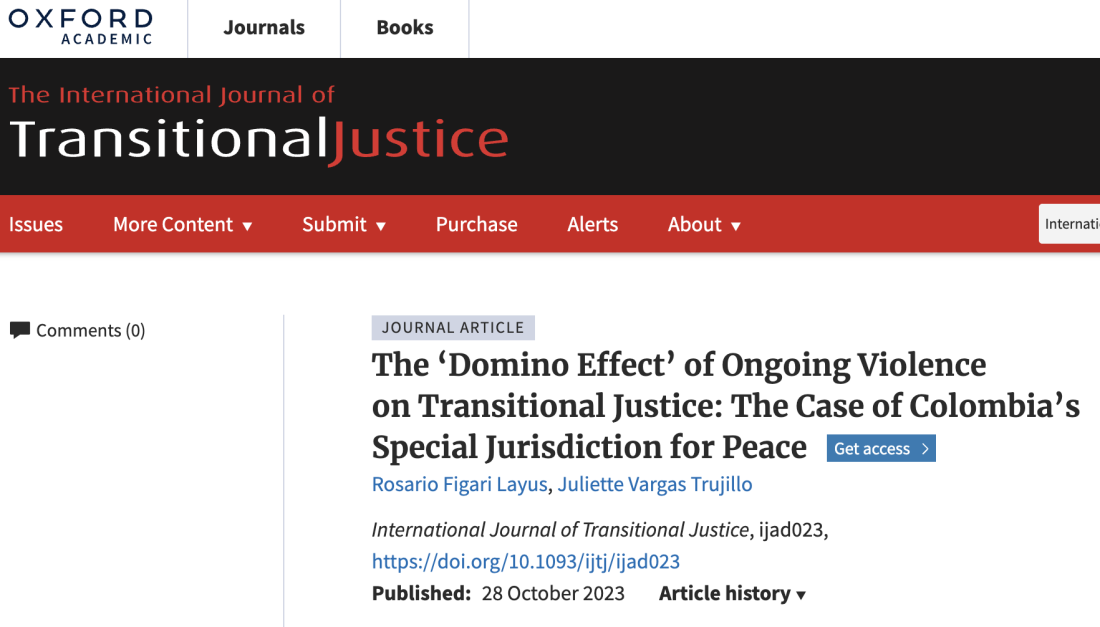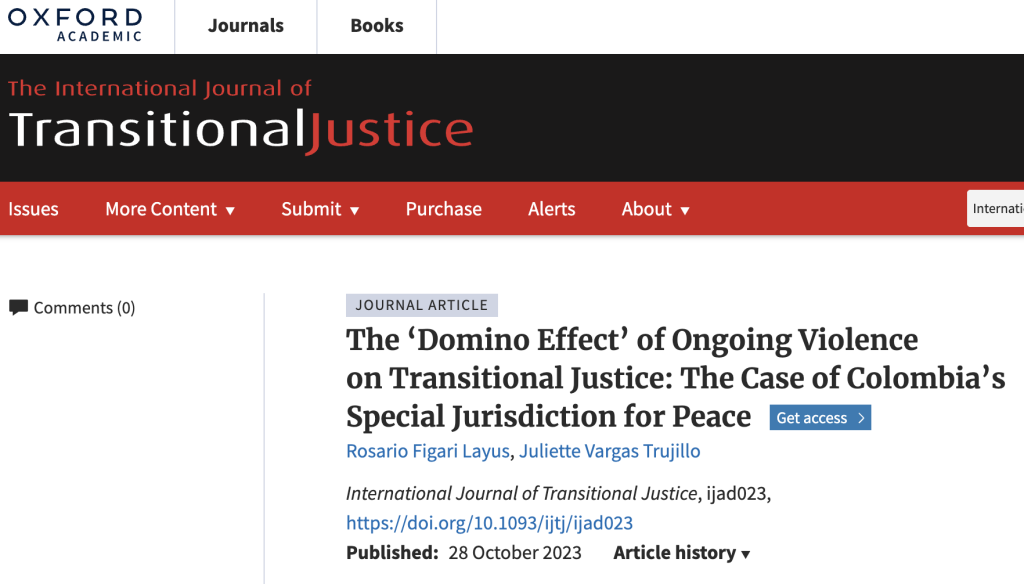
Lectura recomendada: The ‘Domino Effect’ of Ongoing Violence on Transitional Justice: The Case of Colombia’s Special Jurisdiction for Peace

Juliette Vargas (colaboradora científica del Instituto CAPAZ y Rosario Figari-Layus (JLU Giessen) publicaron recientemente el artículo «The ‘Domino Effect’ of Ongoing Violence on Transitional Justice: The Case of Colombia’s Special Jurisdiction for Peace» en la revista «The International Journal of Transitional Justice» de la universidad de Oxford.
En su investigación, las autoras analizan las consecuencias de la continua violencia política en el camino hacia la implementación y consolidación del modelo de justicia transicional propuesto por la Jurisdicción Especial para la Paz (JEP).
Resumen
This article examines the tangible consequences of ongoing armed violence for the implementation of Colombia’s innovative transitional court, the Special Jurisdiction for Peace (Jurisdicción Especial para la Paz, JEP). Establishing transitional justice mechanisms in contexts of persistent armed violence poses significant challenges and the implementation process is likely to seem flawed or lacking to those actors involved. These complex scenarios raise critical questions for the field of transitional justice, notably regarding the expectations of victims and the feasibility of providing truth, justice and reparation in hostile settings. Based on the case of the Colombia’s northwestern Urabá region, this article argues that contexts of ongoing violence have a direct adverse effect on the possibility of the meaningful and effective participation of victims, perpetrators and other key actors in transitional justice processes. Consequently, this restricted participation initiates a ‘domino effect,’ which negatively impacts other transitional goals, including, in the specific case of the JEP, its restorative aims.



